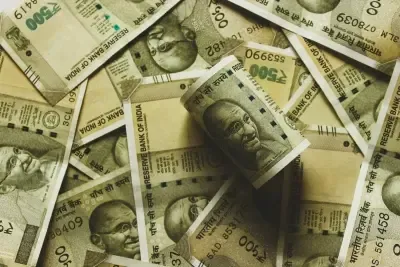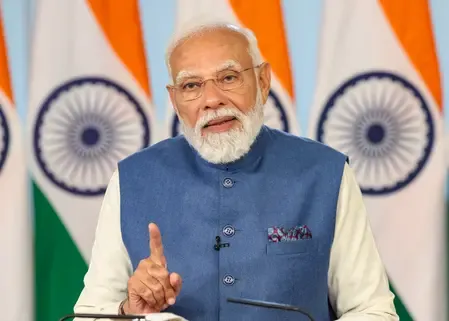Is There a Proposal to Stop the Supply of Rs 500 Denomination Banknotes from ATMs?

Synopsis
Key Takeaways
- No plans to halt Rs 500 notes from ATMs.
- ATMs will continue to dispense Rs 100 and Rs 200.
- Government collaboration with the RBI ensures a balanced mix of denominations.
- Misinformation regarding Rs 500 notes has been clarified.
- Public is encouraged to verify financial updates from official sources.
New Delhi, Aug 5 (NationPress) The government confirmed on Tuesday that there is no plan to halt the distribution of Rs 500 denomination banknotes. ATMs will keep dispensing Rs 500, in addition to Rs 100 and Rs 200.
Pankaj Chaudhary, the Minister of State for Finance, addressed the Rajya Sabha in a written statement, explaining that the printing of banknotes of a specific denomination is determined by the government in consultation with the Reserve Bank of India (RBI) to ensure an adequate mix of denominations that meet public transactional needs.
“The RBI has communicated that, as part of their efforts to improve public access to commonly used banknotes, a circular named ‘Dispensation of Rs 100 and Rs 200 Denomination Banknotes through ATMs’ was issued on April 28, 2025. This instructs all banks and White Label ATM Operators (WLAOs) to guarantee that their ATMs dispense Rs 100 and Rs 200 denomination banknotes consistently,” the minister remarked.
By September 30, approximately 75% of all ATMs will offer either Rs 100 or Rs 200 denomination banknotes from at least one cassette.
“Furthermore, around 90% of all ATMs will provide either Rs 100 or Rs 200 denomination banknotes from at least one cassette by March 31, 2026,” he further noted.
On Sunday, the government dismissed as “false” a WhatsApp message that suggested the RBI had instructed banks to stop issuing Rs 500 notes via ATMs by September 30, clarifying that no such directive has been made.
The misleading message also claimed that 90% of ATMs would stop dispensing Rs 500 notes by March 31, 2026, and 75% would do so by September 30. It even urged individuals to start “liquidating” their Rs 500 notes, insinuating that only Rs 100 and Rs 200 notes would be available through ATMs moving forward.
In response, the Press Information Bureau’s Fact Check unit stated that the RBI has not released any such orders, emphasizing that Rs 500 notes remain legal tender. In a post on X, they declared that the widely circulated claim is false and advised the public to disregard such misinformation.
The Fact Check Unit highlighted the importance of verifying financial updates from official channels and warned that such messages are designed to mislead.










